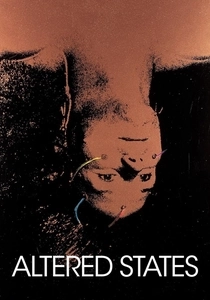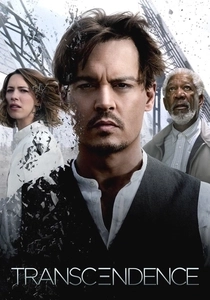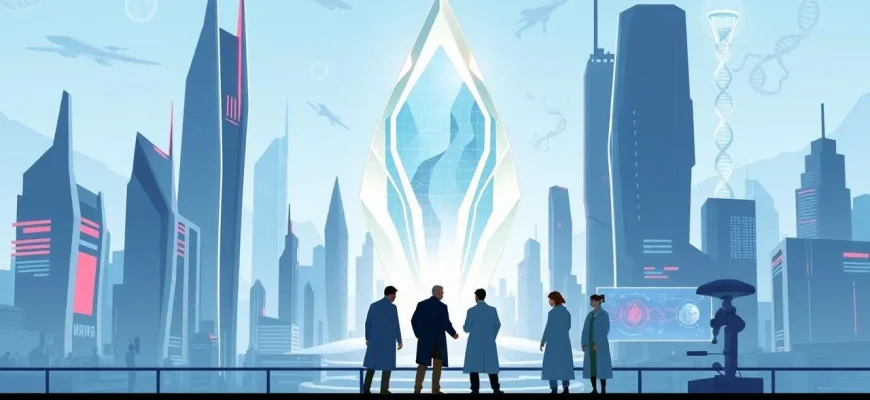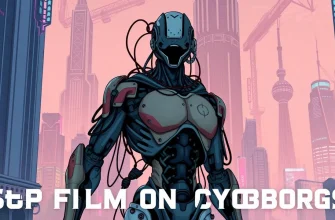Science fiction has always been a genre that explores the boundaries of human imagination, often delving into the realms of health and medicine. This collection of films not only entertains but also provokes thought on how future medical advancements might impact our lives. From genetic engineering to cybernetic enhancements, these movies offer a glimpse into what might be possible, blending thrilling narratives with speculative science.

Altered States (1980)
Description: A scientist experiments with sensory deprivation and hallucinogenic drugs, leading to physical transformations that blur the line between mental health and physical reality. This film explores the psyche and the impact of altered states on health.
Fact: The film was based on the novel by Paddy Chayefsky, who also wrote the screenplay. It was one of the first films to explore the concept of altered consciousness through scientific means.
 Watch Now
Watch Now 
Gattaca (1997)
Description: In a future where genetic engineering determines one's social status, Vincent Freeman, a "natural" born, aspires to become an astronaut, using borrowed DNA to bypass the system. This film explores themes of genetic discrimination and the ethics of genetic manipulation.
Fact: The film's title is based on the letters that make up the components of DNA: guanine, adenine, thymine, and cytosine. The movie was shot in a minimalist style to reflect the sterile, controlled environment of the future.
 Watch Now
Watch Now 
The Matrix (1999)
Description: While not primarily about health, "The Matrix" explores the concept of human bodies being used as energy sources, with health implications tied to the virtual reality they live in. It raises questions about the nature of reality and the control over one's physical state.
Fact: The film's concept was inspired by various philosophical ideas, including Plato's Allegory of the Cave. The Wachowskis spent years developing the story, which was initially pitched as a comic book.
 Watch Now
Watch Now 
The Island (2005)
Description: In a seemingly utopian facility, inhabitants are told they are survivors of a global contamination, waiting for a chance to win a lottery to live on "The Island." However, the truth is far more sinister, involving cloning and organ harvesting. This film raises questions about the ethics of human cloning and the value of life.
Fact: The film was inspired by several sources including the novel "Brave New World" by Aldous Huxley and the movie "Logan's Run." Michael Bay directed this film, known for his visually spectacular action sequences.
 Watch Now
Watch Now 
Ex Machina (2014)
Description: Although more about AI, the film touches on health through the creation of a sentient robot, Ava, who must navigate her own existence and the implications of her artificial body on her "health" and consciousness.
Fact: The film was shot in a remote location in Norway, giving it a unique, isolated feel. It won the Academy Award for Best Visual Effects, showcasing the realistic portrayal of Ava.
 Watch Now
Watch Now 
Repo Men (2010)
Description: In a future where artificial organs can be bought on credit, repo men are tasked with repossessing organs from those who default on payments. This film satirizes the healthcare system and the commodification of health.
Fact: The film was based on the novel "The Repossession Mambo" by Eric Garcia. It features a dark, satirical take on the organ trade and consumerism.
 Watch Now
Watch Now 
Elysium (2013)
Description: In the year 2154, the wealthy live on a luxurious space station called Elysium, while the rest of humanity lives on an overpopulated, ruined Earth. The film focuses on a man's quest for medical treatment, highlighting the disparity in healthcare access.
Fact: The film's director, Neill Blomkamp, is known for his social commentary through sci-fi settings, as seen in his previous work "District
 Watch Now
Watch Now 
Transcendence (2014)
Description: A terminally ill scientist uploads his mind to a computer, achieving digital immortality. This leads to a world where technology and human consciousness merge, exploring themes of artificial intelligence, consciousness, and the implications for human health and identity.
Fact: This was the directorial debut of Wally Pfister, who was previously known for his work as a cinematographer on Christopher Nolan's films. The film's title refers to the concept of transcending human limitations through technology.
 Watch Now
Watch Now 
The Lazarus Effect (2015)
Description: A group of researchers discovers a serum that can bring the dead back to life, leading to unforeseen consequences. The film explores the boundaries of life, death, and the health implications of playing God.
Fact: The film was inspired by Mary Shelley's "Frankenstein," focusing on the ethical dilemmas of reanimation. It was produced by Blumhouse Productions, known for horror and thriller films.
 Watch Now
Watch Now 
Upgrade (2018)
Description: After a brutal attack leaves him paralyzed, Grey Trace receives a spinal implant that not only allows him to walk again but also enhances his physical abilities. This film delves into the ethical and health implications of cybernetic enhancements.
Fact: The film was made with a relatively low budget but received praise for its practical effects and action sequences. It explores themes of transhumanism and the integration of technology with the human body.
 Watch Now
Watch Now 








